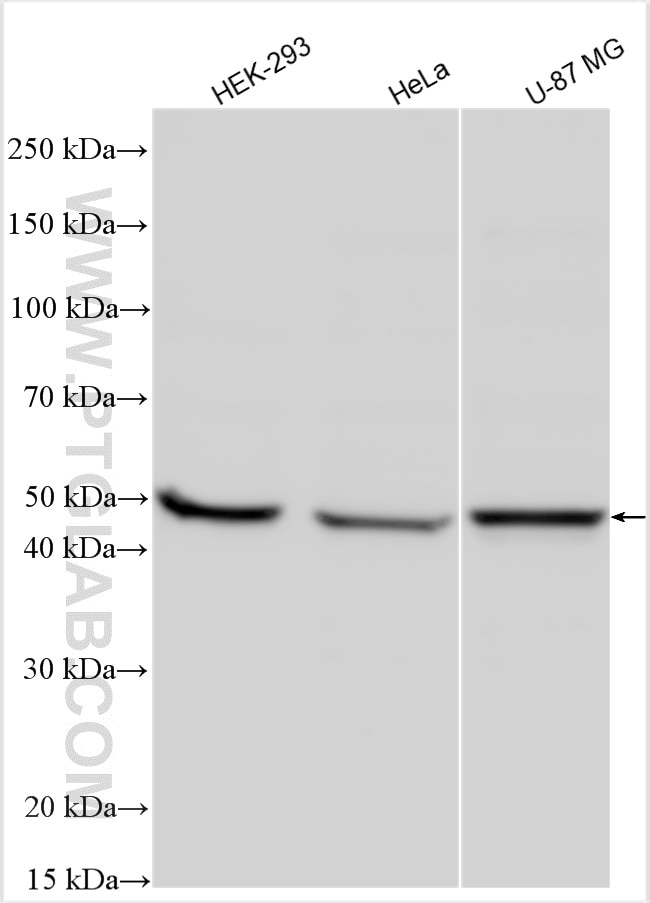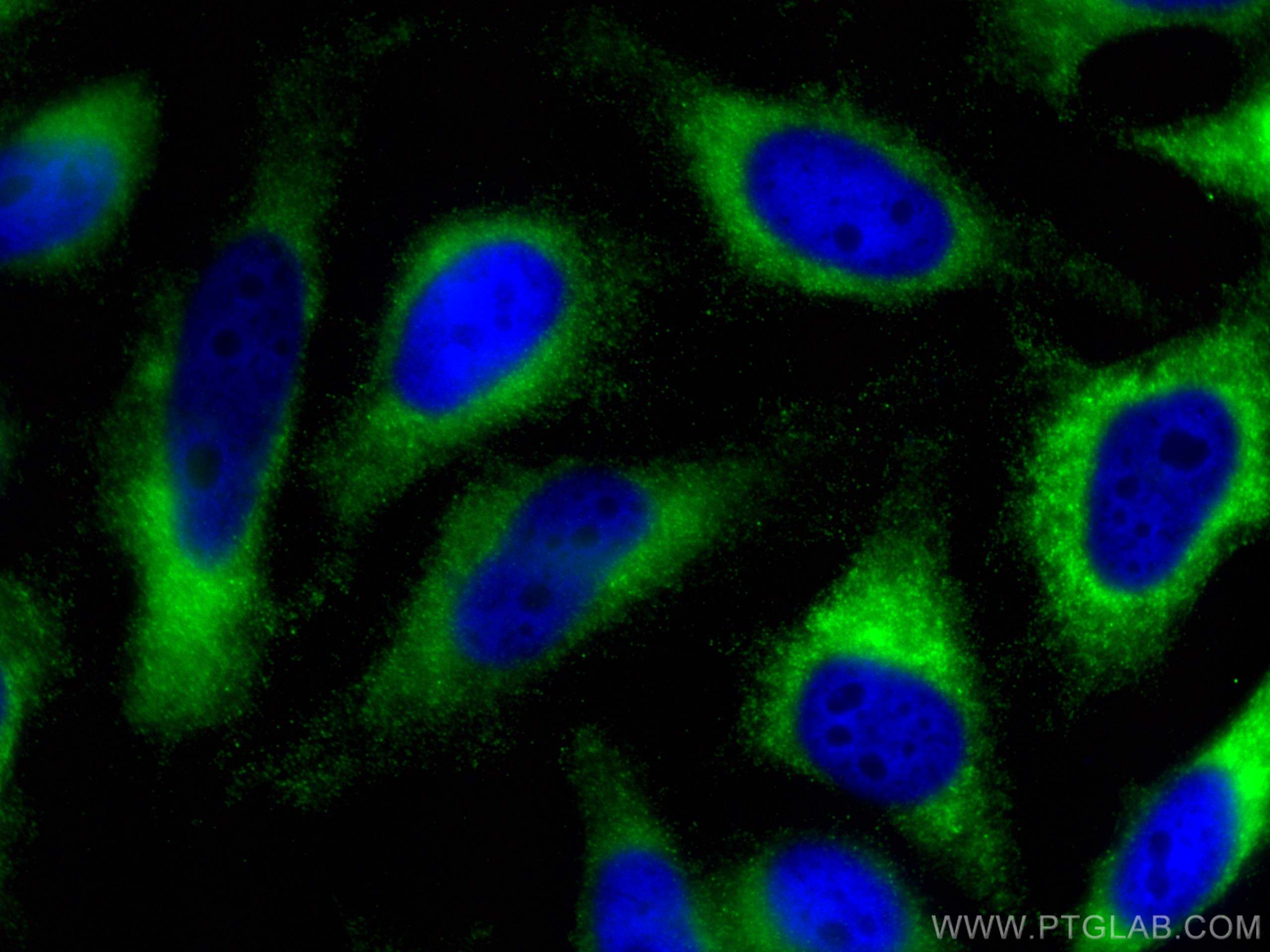Anticorps Polyclonal de lapin anti-CCBL1
CCBL1 Polyclonal Antibody for IF, WB, ELISA
Hôte / Isotype
Lapin / IgG
Réactivité testée
Humain
Applications
WB, IF, ELISA
Conjugaison
Non conjugué
N° de cat : 30296-1-AP
Synonymes
Galerie de données de validation
Applications testées
| Résultats positifs en WB | cellules HEK-293, cellules HeLa, cellules MG U-87 |
| Résultats positifs en IF | cellules HeLa, |
Dilution recommandée
| Application | Dilution |
|---|---|
| Western Blot (WB) | WB : 1:500-1:3000 |
| Immunofluorescence (IF) | IF : 1:50-1:500 |
| It is recommended that this reagent should be titrated in each testing system to obtain optimal results. | |
| Sample-dependent, check data in validation data gallery | |
Informations sur le produit
30296-1-AP cible CCBL1 dans les applications de WB, IF, ELISA et montre une réactivité avec des échantillons Humain
| Réactivité | Humain |
| Hôte / Isotype | Lapin / IgG |
| Clonalité | Polyclonal |
| Type | Anticorps |
| Immunogène | CCBL1 Protéine recombinante Ag32316 |
| Nom complet | cysteine conjugate-beta lyase, cytoplasmic |
| Poids moléculaire observé | 48 kDa |
| Numéro d’acquisition GenBank | BC033685 |
| Symbole du gène | CCBL1 |
| Identification du gène (NCBI) | 883 |
| Conjugaison | Non conjugué |
| Forme | Liquide |
| Méthode de purification | Purification par affinité contre l'antigène |
| Tampon de stockage | PBS avec azoture de sodium à 0,02 % et glycérol à 50 % pH 7,3 |
| Conditions de stockage | Stocker à -20°C. Stable pendant un an après l'expédition. L'aliquotage n'est pas nécessaire pour le stockage à -20oC Les 20ul contiennent 0,1% de BSA. |
Informations générales
CCBL1 encodes kynurenine aminotransferase 1 (KAT1), a key enzyme involved in kynurenine pathway. CCBL1 catalyzes the production of kynurenic acid, a powerful endogenous excitatory amino acid receptor antagonist that is widely regarded as the potent neuroprotective agent.
Protocole
| Product Specific Protocols | |
|---|---|
| WB protocol for CCBL1 antibody 30296-1-AP | Download protocol |
| IF protocol for CCBL1 antibody 30296-1-AP | Download protocol |
| Standard Protocols | |
|---|---|
| Click here to view our Standard Protocols |



